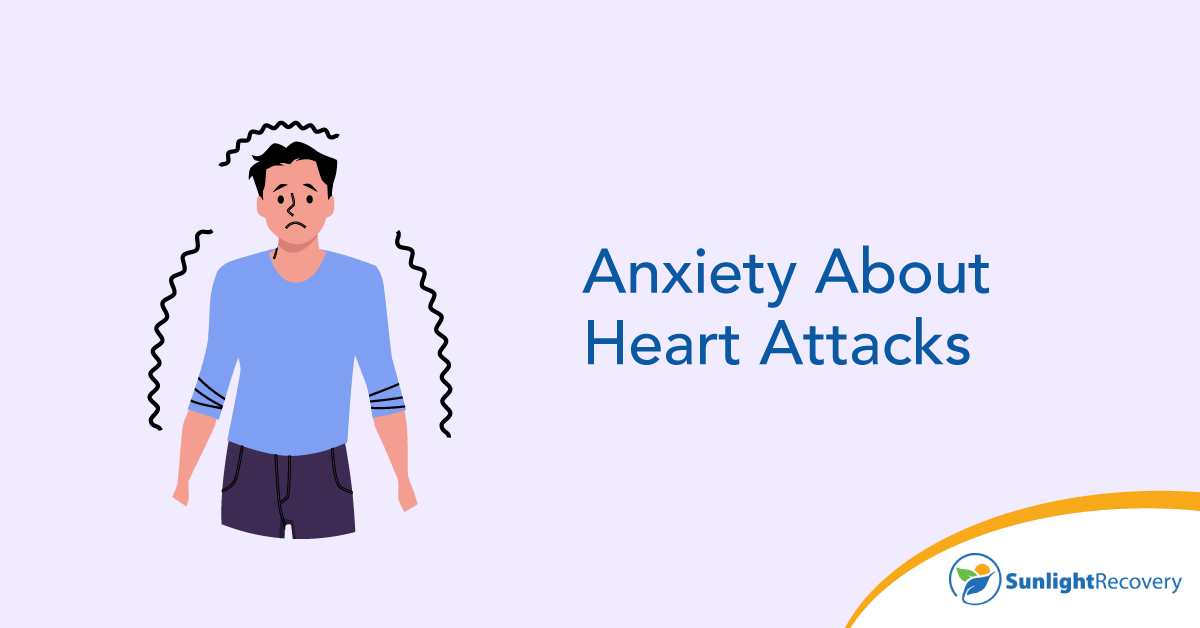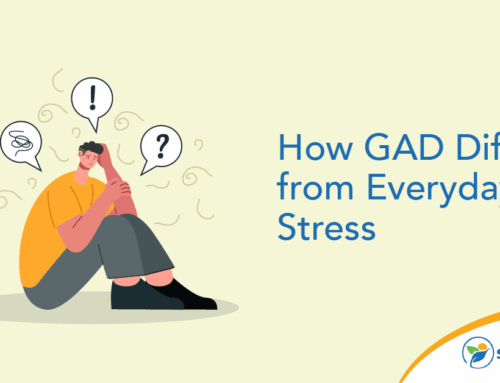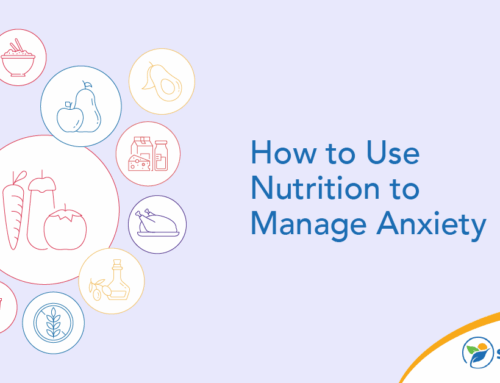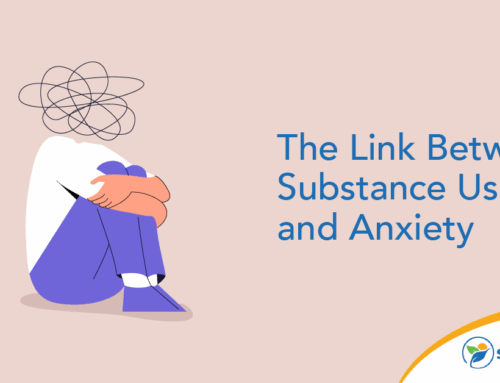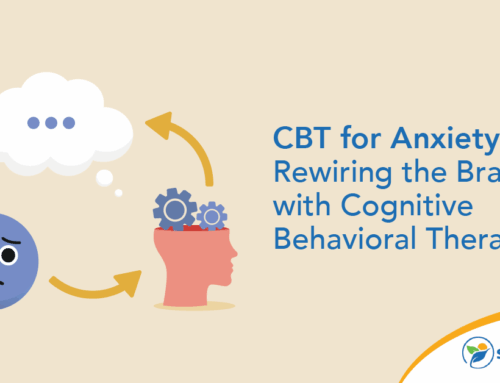Do you live with cardiophobia — the fear of a heart attack? Learn about this surprisingly common issue. Help is available if you need it.
Cardiophobia, the fear of heart attacks, is surprisingly common and affects more people than most realize. According to a 2020 study published in the Journal of Anxiety Disorders, approximately 20% of adults experience some level of cardiac anxiety, with many fearing an impending heart attack despite being in otherwise good health. This anxiety can severely impact quality of life and lead to constant worry, sleepless nights and avoidance of physical activities. While it’s natural to be concerned about heart health, this fear requires understanding and management to prevent it from controlling a person’s daily life.
Understanding Health Anxiety Related to Heart Attacks
Cardiophobia causes health anxiety, with the individual experiencing excessive worry about having or developing heart problems. This isn’t solely about fear of the heart stopping; it often involves a larger sense of health-related dread. For people with cardiophobia, any sensation in the chest, such as a skipped heartbeat or slight discomfort, can trigger intense fear that a heart attack is imminent.
While a certain level of concern is valid, people with cardiophobia often magnify these risks. Cardiac anxiety can lead to obsessive behaviors, such as frequent doctor visits, excessive medical research and unnecessary medical tests. These individuals often misinterpret normal bodily sensations as signs of a severe cardiac event.
Recognizing Real Symptoms Versus Anxiety-Driven Fears
One of the biggest challenges in dealing with cardiophobia is distinguishing between actual heart attack symptoms and anxiety-driven fears. People with cardiophobia may experience symptoms that mimic those of a heart attack, such as chest pain, shortness of breath or dizziness, though they’re not in any physical danger. These symptoms are typically a result of anxiety rather than a true cardiac event.
When someone experiences anxiety, their body goes into fight-or-flight mode, releasing stress hormones such as adrenaline. These hormones can cause physical reactions, including increased heart rate, rapid breathing and chest tightness. Someone with cardiophobia can misinterpret these normal anxiety responses as the onset of a heart attack, leading to even more panic. The cyclical nature of anxiety makes it difficult to break the pattern of fear.
A true heart attack tends to have more consistent and specific symptoms. These include prolonged chest pain or discomfort that may spread to the arms, back, neck, jaw or stomach, along with cold sweats, nausea and lightheadedness. These symptoms are often persistent and don’t fluctuate with changes in emotional state, unlike anxiety-driven symptoms, which tend to ease when things calm down.
Coping Mechanisms to Manage Heart-Related Anxiety
Managing cardiophobia requires a combination of awareness, lifestyle changes and relaxation techniques. If you have cardiophobia, one of the first steps is recognizing when anxiety is driving your fears. Try keeping a journal of your thoughts, physical sensations and various triggers to identify patterns in how you feel. This can be especially useful when distinguishing between anxiety symptoms and serious medical concerns.
Relaxation techniques can help here. Deep breathing exercises, progressive muscle relaxation and mindfulness meditation help some people reduce and manage their anxiety levels. These techniques help calm the nervous system and prevent the body from going into fight-or-flight mode. Practicing these skills regularly can help reduce the physical symptoms of anxiety, making it easier to manage fear when it arises.
Another productive way to manage cardiac stress is by adopting a heart-healthy lifestyle. Engaging in regular physical activity, eating a balanced diet and quitting smoking (if applicable) can help lower your risk of heart disease and give you a sense of control over your health.
However, it’s important to strike a balance. Don’t avoid exercise out of fear of triggering a heart attack, but overexercising due to cardiac fear can also be harmful. Consult a health care provider for personalized guidance on safe and healthy exercise routines.
Paradoxically, limiting your exposure to medical information online is another potentially helpful step to try. Constantly researching symptoms or reading about heart conditions can fuel anxiety rather than alleviate it. Instead, try setting specific times for medical research, and focus on credible sources. Recognize that obsessively checking your heart rate or monitoring your physical sensations can actually increase your anxiety.
The Role of Therapy in Addressing Heart Attack Fears
While self-help techniques can be beneficial, professional therapy is often necessary for individuals with severe cardiophobia. Cognitive behavioral therapy is one of the most effective treatments for health anxiety, including anxiety about heart problems. CBT helps patients challenge their irrational thoughts and reframe their fears in a more logical, realistic way than the anxiety-riddled thoughts and feelings that drive phobias. Through CBT, individuals learn to identify distorted thinking patterns that may be contributing to their anxiety, such as catastrophizing normal sensations as heart attacks.
Exposure therapy is another useful approach, especially for people whose cardiophobia has caused them to avoid certain activities or situations. In exposure therapy, patients gradually face their fears in a controlled environment. This often helps them become desensitized to the physical sensations they once found so frightening. Consistently applying this approach helps reduce the fear response over time and allows people to reclaim aspects of their lives they may have lost due to avoidance.
In addition to CBT, other forms of therapy, such as mindfulness-based stress reduction, can be useful. MBSR helps individuals focus on the present moment and reduces fear by encouraging them to observe their thoughts and feelings without judgment. By doing so, they can break the cycle of panic that cardiophobia often creates.
Prescription medication may also be a helpful choice for people with severe anxiety. Antianxiety medications or antidepressants can help regulate mood and reduce the intensity of physical symptoms. However, medication should generally be used in conjunction with therapy for the best results, as medications don’t address the root cause of the anxiety.
Overcoming Cardiophobia for Yourself
While cardiophobia can be overwhelming, you don’t have to face it alone. By understanding the nature of your fears, recognizing the difference between anxiety and actual symptoms and seeking professional support when necessary, you can take productive steps toward managing your anxiety. Don’t let the fear of a heart attack control your life. Reach out to Sunlight Recovery today and begin your journey toward overcoming cardiophobia and living a healthier, more peaceful life.


